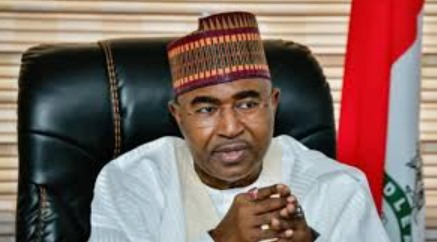Brig. Gen. Mohamed Marwa (retd.), Chairman of the National Drug Law Enforcement Agency (NDLEA), has issued a fervent call to action, urging parents, traditional rulers, religious leaders, and community figures to unite with the government in combating the escalating issues of drug abuse, cultism, and banditry plaguing Nigerian youth. Speaking at a seminar organized by the Ijebu Ode Council of Olorituns in Ogun State, Marwa emphasized the interconnected nature of these societal ills, describing them as a “triple threat” that demands immediate and concerted action. He stressed the need for collective responsibility, highlighting the critical role of families, schools, and communities in preventing these vices from taking root.
Marwa painted a grim picture of the current situation, pointing to the alarming spread of cultism from tertiary institutions down to secondary schools and even neighborhoods. He lamented the manipulation of vulnerable youth by criminal elements who exploit their desire for belonging and power, leading them down a path of violence and often premature death. Adding to this bleak scenario, Marwa cited a UN Office on Drugs and Crime projection that estimates a 40% increase in drug use across Africa. This alarming statistic underscores the urgency of the situation and the need for comprehensive strategies to address the root causes of drug abuse.
Despite the daunting challenges, Marwa expressed a degree of optimism, emphasizing that reversing this negative trend is still within reach. He stressed the importance of a multi-pronged approach involving families, educational institutions, religious bodies, traditional leaders, and community organizations. Marwa called for the strengthening of the family unit as the foundation of moral instruction and urged schools to become safe havens that foster discipline, mentorship, and awareness. He also underscored the need to invest in youth development programs that provide opportunities for education, entrepreneurship, skills acquisition, and sports, arguing that gainful engagement is crucial to preventing youth from falling prey to the allure of cults and drugs.
The NDLEA Chairman detailed the agency’s intensified efforts in the war against drug trafficking and abuse. He highlighted nationwide raids that have resulted in significant seizures of illicit substances and the arrest of numerous traffickers, including high-profile drug barons. Over a period of 54 months, the NDLEA has apprehended 67,345 traffickers, with 95 barons among them, and successfully secured convictions for 12,415 individuals. Furthermore, the agency has seized over 11.2 million kilograms of assorted illicit drugs and destroyed 1,572 hectares of cannabis farms, many of which were located in southwestern states. Marwa expressed particular concern about the large-scale cultivation of cannabis in these regions, lamenting the diversion of valuable agricultural land from legitimate cash crops to illicit cultivation.
Despite these substantial achievements, Marwa acknowledged that the NDLEA cannot single-handedly win this war. He appealed for greater community involvement, urging citizens to partner with the agency by reporting suspicious activities and actively supporting advocacy drives. He specifically called upon communities like Ijebu Ode to collaborate with the NDLEA in its mission to curb drug abuse, cultism, and banditry. He emphasized that community vigilance and active participation are crucial in disrupting the supply chain of illicit drugs and creating an environment where youth are less vulnerable to the temptations of these destructive vices.
Marwa’s address serves as a powerful reminder of the urgent need for a comprehensive and collaborative approach to tackle the interconnected challenges of drug abuse, cultism, and banditry. His call for collective responsibility underscores the vital role that parents, community leaders, religious institutions, and government must play in protecting the future of Nigerian youth. By strengthening families, providing opportunities for youth development, and intensifying law enforcement efforts, Nigeria can begin to dismantle the complex web of factors that contribute to these destructive social ills. The emphasis on community partnership and the importance of reporting suspicious activities highlight the need for a whole-of-society approach, where everyone plays a part in creating a safer and more prosperous future for all.


